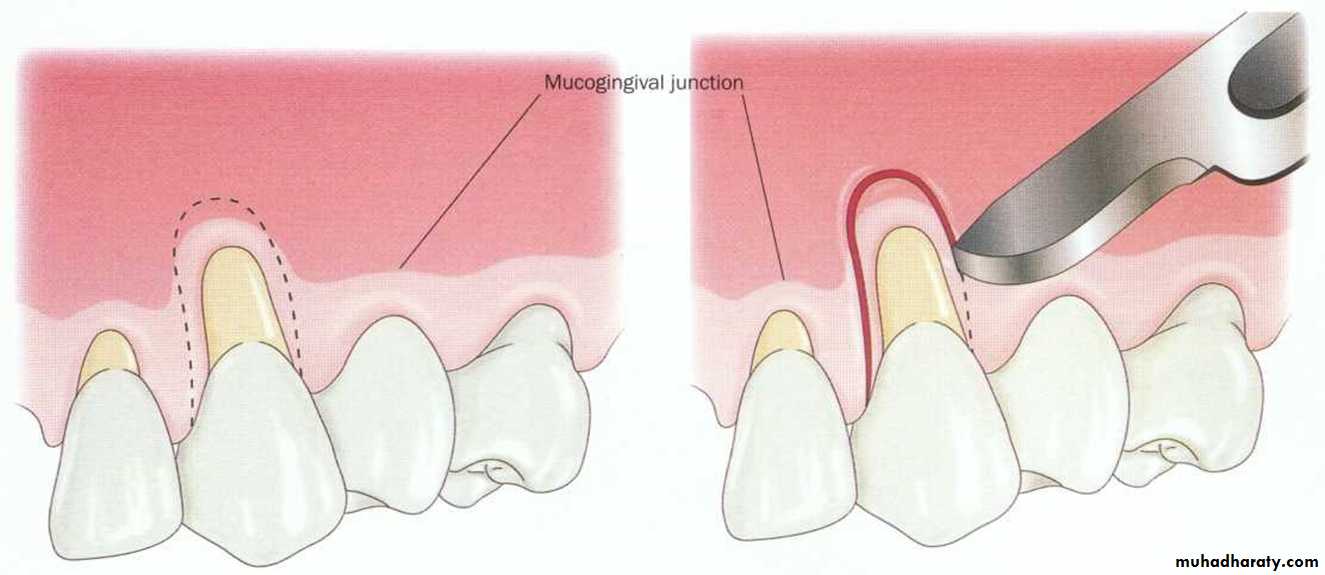MUCOGINGIVAL FLAP SURGERY
This is a form of plastic surgery used to correct the effects of recession caused by periodontitis or poor developmental anatomy or traumatic toothbrushing. It is usually indicated to improve the gum thickness to reduce the risk of further recession, reduce dental sensitivity, in some cases cover the roots. In severe cases, it can improve the life span of the teeth treated. The ability to achieve root coverage reduces with increasing extent of recession.

Mucogingival surgery usually involves transfer of a small amount of gum from the palate to the area in question. This will provide an area of tough and thick gum that will be easier to maintain clean and in turn reduce the risk of the recession worsening. Whereas, the donor site in the palate will heal very readily with new tissue.
If a large amount of tissue is required, acellular dermal matrix is used instead. This is a pharmaceutical product obtained from a human tissue origin which is freed of cells and as such there is no recorded risk of transmission of infection or tissue rejection. Acellular dermal matrix has been used in medicine and dentistry for over ten years to repair hernias, breast reconstruction and for dental root coverage.
Mucogingival surgery is a safe and delicate procedure with a high success rate particularly if gentle tooth-brushing techniques are employed. The only complications are pain swelling and bruising in the first week postoperatively and tend to be self-limiting in most cases with use of standard over the counter painkillers.
There are certain instances when this proposed procedure fails due graft necrosis. This usually occurs due to failure of establishment of new blood supply caused by a disruption of the graft during the healing period by lip pulling for example. Following graft necrosis, the gum returns to its initial position prior to the surgery but in very rare cases it can worsen.
Low plaque levels have been shown to maximise the healing outcome, therefore, monthly hygienist visits are usually necessary after periodontal surgery for 3 months. The site of the surgery is assessed about 12 weeks from the date of the surgery.
